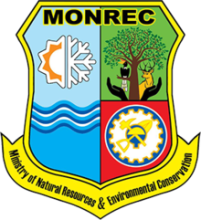Resource information
... This document reports on a study carried out to assess the value of the forest sector to Myanmar's economy, in order to justify and identify niches for developing forest-based payments for ecosystem services (PES) and other mechanisms that can be used to generate financing for forest conservation.
The study focuses on nine categories of forest ecosystem services that are of high importance in economic and human wellbeing terms, and for which sufficient data are available to enable monetary valuation: wood-based biomass and energy, wild foods, animal-based energy, watershed protection, coastal protection, carbon sequestration, maintenance of nursery populations and habitats, pollination and seed dispersal, and nature-based recreation and tourism.
The study first assesses the baseline: it identifies the ecosystem services that are currently being generated by the forest sector, and estimates their economic value. It then models two possible policy and management futures: “Forest Degradation”, under which forest lands and resources continue to be degraded and over-exploited; and “Forest Conservation”, under which forests are used sustainably and conserved effectively according to the goals and targets laid out in the Forestry Masterplan...



